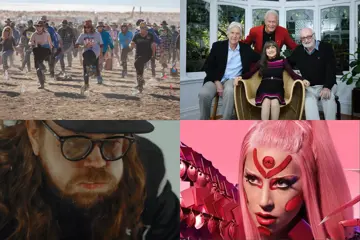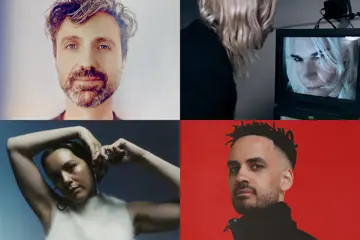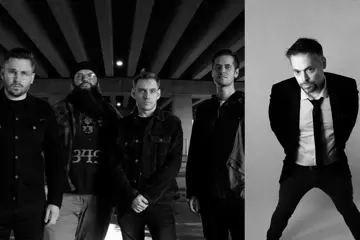“There's this perception of Europe as the source of ancient culture, as the cradle of civilisation, and people from Australia, North and South America, Africa, and Asia have all been effected by that idea,” says Tony Krawitz, the director of Dead Europe. “[This] story is about challenging that idea, about confronting this idea of Europe, in the 21st century.”
Adapted from Christos Tsiolkas's sprawling familial saga of small-town superstition and social culpability, the film follows a Greek-Australian (Ewen Leslie) who, following his father's death, returns to the old family village in the Greek mountains, stirs up the ghosts of past tragedy, and then is haunted throughout a road-movie descent into the dark depravity of the old continent. “It's almost like Joseph Conrad's Heart Of Darkness,” says Krawitz, 44, “[that] white colonial thing; where European explorers would go visit these dark, unknown Southern Hemisphere lands. But here it's the other way around, it's the prodigal son from the colonies, returning to Europe, and finding some of the horrors lurking back in the homeland.”
The adaptation wasn't exactly straightforward; Krawitz and writer Louise Fox stripping the multi-generational, trans-continental sprawl of the novel down to a spare 80 minutes. “It's the kind of book that lots of people said was unadaptable,” Krawitz smiles. The film trips from Sydney to Athens to Paris to Budapest, filming in sequence so that the “difficult logistical undertaking” of the production mirrored the journey of the narrative. That sense of constant travel speaks of the story's themes. “The book is about the dispossessed of Europe,” Krawitz says. “In the end, the film is a plea for an end to hatred and bigotry. It takes an Australian character who thinks he knows about the world and understands the world, to be confronted by the bigotry within Europe today.”
The film operates with high theatricality, a psychological thriller touched with a curse lifted from a horror movie; or, as its director says, “inspired by Greek tragedy, biblical stories, Shakespeare.” Yet, there's socio-realist themes in the margins; scenes shot amongst oppressed Romany people in France, Albanian refugees in Greece, and rioters on the streets of Athens. This amounts to taking a post-September-11 story and moving it into the contemporary now. “We decided to set it very much in this instant, to make it about what's happening with refugees today,” Krawitz says. “There's a lot of contemporary fall-out from Europe, and making the film set now doesn't mean that you're avoiding history; history is with us all the time. That's one of the themes of the film: you have to deal with the past. And if you don't deal with the past, it'll come back and bite you.”
Don't miss a beat with our FREE daily newsletter
That makes Dead Europe a fascinating companion-piece to Lore, the latest film from Krawitz's wife, Cate Shortland; another film in which bloodied European history holds a mirror up to contemporary racism. These sentiments follow on from his 2011 documentary The Tall Man, an exploration of Australia's shameful past. “You need to deal with the past to be able to deal with the present,” Krawitz says. “There's still so much work to be done for mainstream Australia to ever really have an honest view of this country's history, in regards to the historical treatment of indigenous Australians. And it feels like until we deal with that, it will be difficult to enact change in the present.”
WHAT: Dead Europe
WHERE & WHERE: In Cinemas Thursday 15 November















